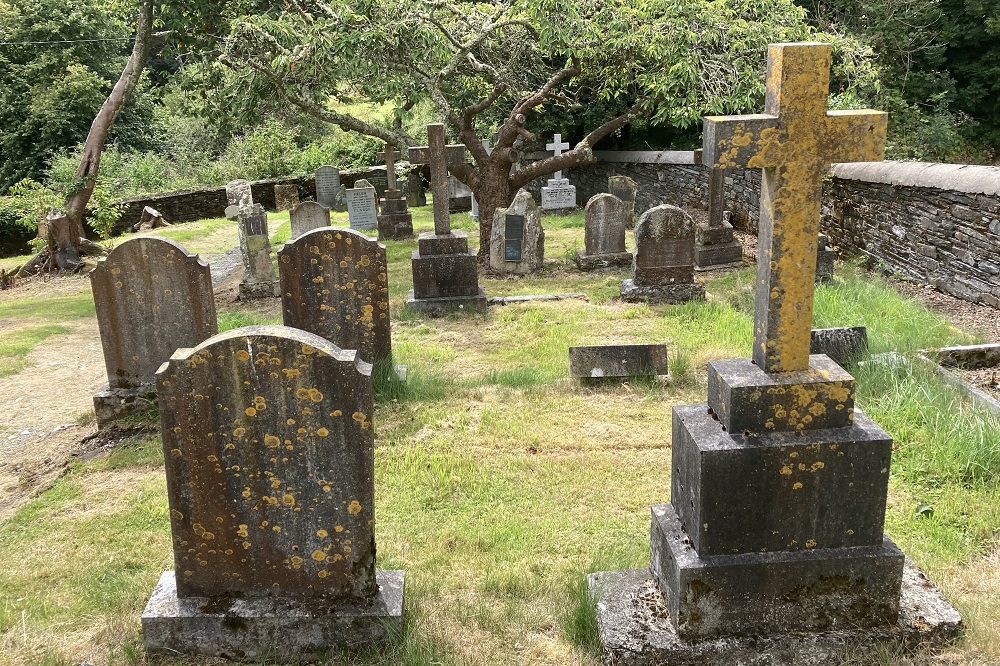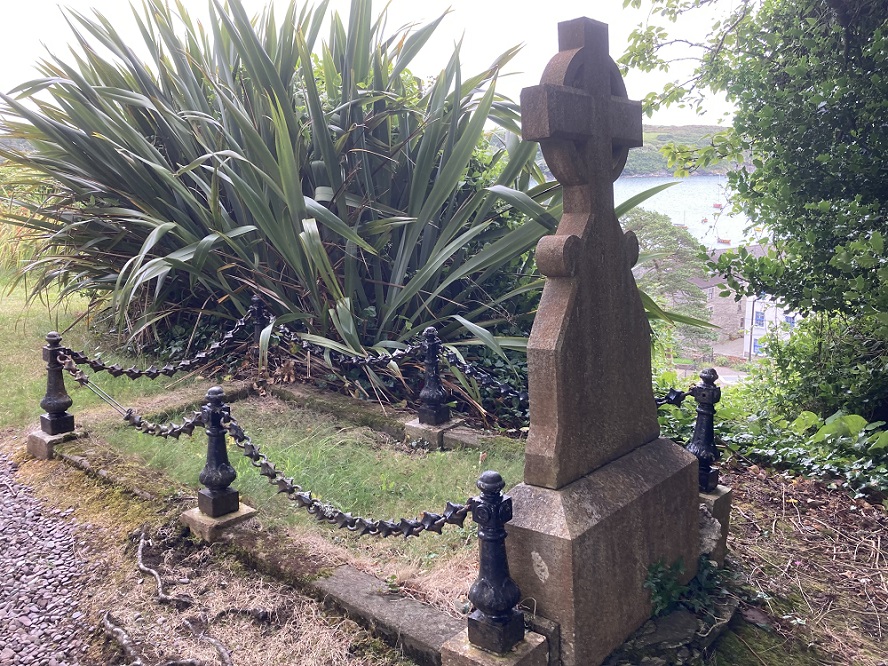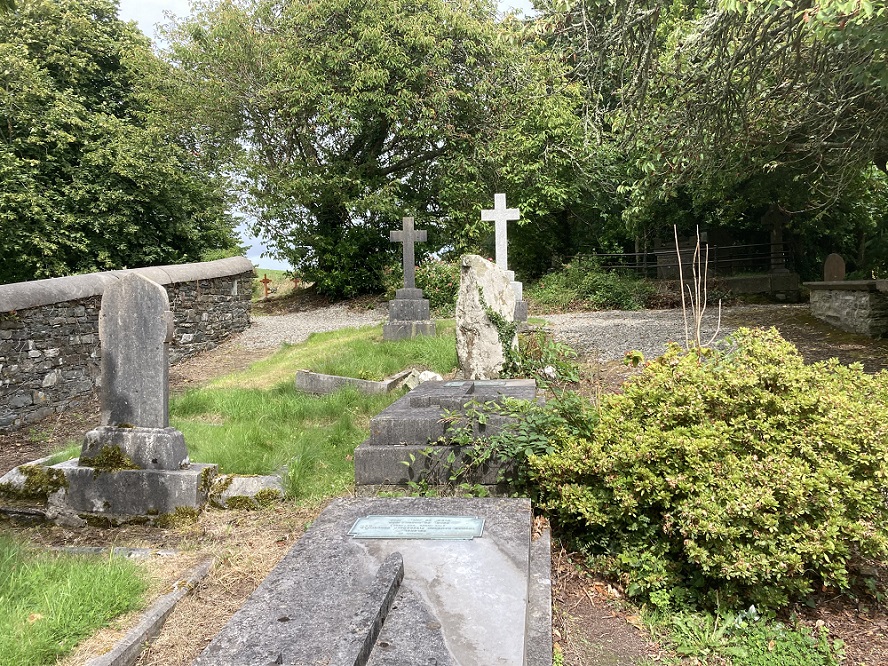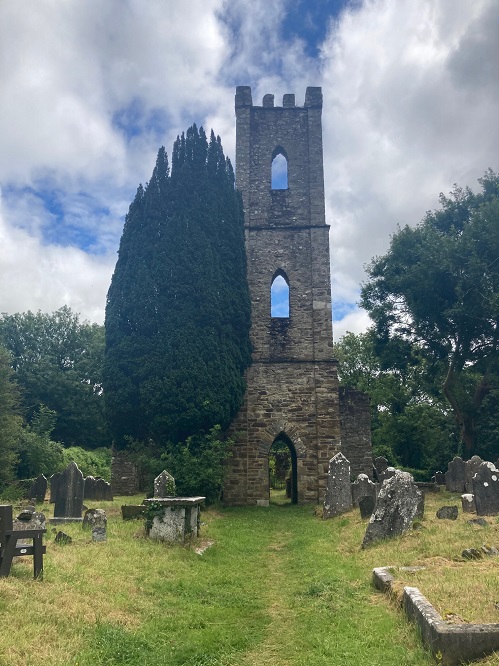Letter from Cork

Jon Gower
I haven’t enjoyed hearing about death so much for a long, long time. How so? Well, when the Irish gift for storytelling applies itself to the subject of funerals it’s both macabre and marvellous in the same last breath.
I had just such a bravura display of oral storytelling just an hour after arriving in the country.
My friend Paul’s plumber Kevin had just called round to investigate some wet patches on a ceiling but soon the subject changed from leaky pipes to discount funerals.
He then regaled us with a fine tale full of grim but achingly funny detail about someone being buried on the cheap. The very cheap.
Dignity
Kevin had been tidying up the family grave at a local cemetery when a noticeably ‘unshiny and unmarked’ hearse pulled up in the fading light.
Two shifty looking men, accompanied by a junior priest, briskly carried out a coffin. The receptacle looked like the cheapest sort, made of chipboard if not cardboard and the two men swiftly carried it to the edge of a newly-dug grave.
The priest mumbled some perfunctory words of blessing. Meanwhile Kevin noticed that the trio weren’t carrying ropes with which to lower the deceased into the very final resting place.
Believing they were just going to ignominiously toss the coffin into the hole, with no dignity whatsoever Kevin promptly accosted them.
Very, very forcibly, and with some judiciously chosen and persuasive swear words he informed the three that unless they lowered the person into the hole with some respect he’d throw all three of them in there himself.
Sheepishly, they returned to the hearse to fetch the ropes. But this wasn’t enough for our heroic plumber Kevin. He now turned on all the angry taps, insisting that the priest deliver the full blessing in Latin, then stood listening in the rain as the two cut-price funeral directors scowled at him with faces as grim as the by-now sheeting rain.

Ghoulish bingo
The funeral, and its attendant wake is a distinctive and, well, lively part of Irish life. They certainly do it differently. I recall being told about someone who rang a hotel to book a wake and was asked if they wanted the discotheque at no extra cost. It’s no surprise therefore that it features prominently in Irish writing.
In the great Cork short story writer Frank O’Connor’s appropriately entitled “The Wreath” there’s a sequence that reminds me how my grandmother Bess would watch the funerals in the chapel across the street to our family home in Pwll.
It was as if she was filling in a ghoulish bingo card, marking off the villagers as they shuffled off this mortal coil.
O’Connor tells us how:
‘A considerable crowd had gathered at the farther side of the bridge to escort the hearse to the cemetery. Four men shouldered the shiny coffin over the bridge past the castle and up the hilly Main Street. Shutters were up on the shop fronts, blinds were drawn, everything was at a standstill except where a curtain was lifted and an old woman peered out.
“Counting the mourners,” Fogarty said with a bitter laugh.’

Gallows humour
Not that Welsh writers haven’t similarly enjoyed a good funeral. You need only read the work of Rhys Davies to enjoy the pale tang of embalming fluid lifting off the page and savour dark tales filled with coffins, contested wills, artificial limbs and gallows humour.
In Davies’ story “The Dark World” two Welsh boys develop an unhealthy interest in viewing corpses, avidly ‘looking for windows covered in white sheets, the sign that death was within.’
It’s macabre and over-the-top prose and deliciously so.
For even in the midst of death, Davies proves, there are always oodles of humour.

Death notices
One of the big changes in Irish funerals of late has been the move online, in great part due to COVID of course.
It’s a convenient and environmentally kind way of paying one’s respects via the online book of condolence and a green way of getting graveside.
As well as the streamed service people sometimes set up private chat rooms so they can discuss the mourners’ hats or the sheer gall of so-and-so showing his ugly face.
And then there’s RIP.ie, a countrywide searchable website where, as its banner proclaims, “End of Life Matters.”
It’s the modern equivalent to my grandmother avidly thumbing the death notices in the Western Mail, like one of those French ghouls who was always hanging around the base of the guillotine in revolutionary days.

Reassurance
RIP.ie allows you to conveniently search for the newly departed on a county-by-county basis.
You can therefore look for the dearly departed of Donegal, search the newly deceased of County Dublin or ferret around for the exanimate folk of County Fermanagh.
It also has a handy and exhaustive list of things to do should someone you know suddenly pass away.
And, just for deep reassurance, you can always type in your own name, relieved, as ever, that nothing comes up, proving that you have indeed lived long enough to enjoy one more day on earth.
Which is always another fine story.
Enjoy more ‘Letters from‘ by following the links on this map
Support our Nation today
For the price of a cup of coffee a month you can help us create an independent, not-for-profit, national news service for the people of Wales, by the people of Wales.






My ancestors are from the Cork area but the link given only runs from 1923 and my great great grandfather Patrick arrived in Cardiff in 1849, around the time of the potato famine. One day I’ll pop across to search some of Cork’s cemeteries, see if I can find some of my ancestors graves.